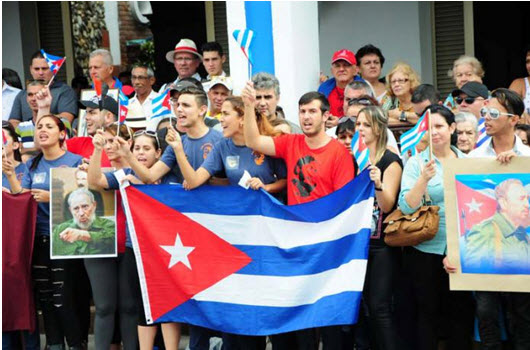The Popular Front for the Liberation of Palestine (PFLP), opened a “house of mourning” on Thursday, December 1, in Gaza for the late Cuban President Fidel Castro who died last Friday, November 25, at the age of 90.

Cubans mourn Fidel Castro in city of Sancti Spíritus in the central part of the country. (Foto: Granma)
Kayed al-Ghoul, a member of the PFLP’s central committee, told Palestinian Ma’an news agency that Castro’s death was a “huge loss for the Palestinian people and for humanity,” adding that Castro was the most important revolutionary leader who consistently supported the Palestinian struggle. He said that “the people who failed to assassinate Castro when he was alive are now trying to kill him after his death,” referencing the media’s negative treatment of Castro’s legacy since his death, particularly in the United States media. Al-Ghoul highlighted that the mourning house was created to “honor the soul” of Castro, saying that it was “the least they could do” after Castro’s sustained support of the Palestinian people throughout the previous decades.
The Palestinian cause was a central issue during the whole of Castro’s political life. Diplomatic ties between Cuba and Palestine began in the same year that Castro became prime minister in 1959, following the Cuban revolution, during a visit by Che Guevara to the Gaza Strip. Since then, the revolutionary leader spoke out consistently condemning Israeli violations against Palestinians, provided both diplomatic and military support to the Palestinian cause, and also became a close friend to the late President Yasser Arafat. In 2014, Castro, along with several other Latin American countries, spoke out against Israeli’s deadly offensive on the besieged Gaza Strip which, according to UN figures, left some 2,251 Palestinians dead, two thirds of whom were civilians, calling the assault a “new, repugnant form of fascism” in a column for “Granma” newspaper.


